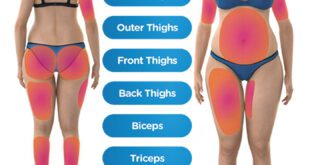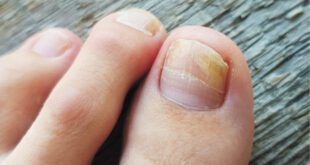By Dr. Ashley Cauthen
 There’s so much to celebrate as we reach a new year, and while we all try to focus on the good there is something we need to be aware of that affects our skin, hair and nails. What is one emotion that every single person will experience to some extent every day? You got it, stress. Stress is a physical and emotional reaction that people experience as they encounter changes in life. Stress can result from minor nuances such as getting stuck behind a school bus and being late to work to major life events like navigating a divorce, loss of a job, or dealing with a pandemic. Society is so stressed, we even have Stress Awareness Month (yes, it’s April!). However, long term stress can lead to a myriad of health problems.
There’s so much to celebrate as we reach a new year, and while we all try to focus on the good there is something we need to be aware of that affects our skin, hair and nails. What is one emotion that every single person will experience to some extent every day? You got it, stress. Stress is a physical and emotional reaction that people experience as they encounter changes in life. Stress can result from minor nuances such as getting stuck behind a school bus and being late to work to major life events like navigating a divorce, loss of a job, or dealing with a pandemic. Society is so stressed, we even have Stress Awareness Month (yes, it’s April!). However, long term stress can lead to a myriad of health problems.
When you feel stressed, your body releases the stress hormones cortisol and adrenaline. Prolonged elevated levels of these hormones can affect all of our organ systems in different ways. We’ll focus on our largest organ, skin.
Elevated levels of cortisol will lead to increased production of oil from sebaceous glands and result in acne. It can also shift our immune system into a more inflammatory state and cause various rashes or hives. Patients with chronic skin conditions like eczema, psoriasis, and rosacea are always at risk of flaring secondary to stress. Autoimmune conditions like vitiligo and alopecia areata (a type of hair loss most commonly presenting with circular patches of baldness), are known to be exacerbated by stressful life events. Telogen effluvium (a generalized shedding of hair) is another type of hair loss closely tied to stress. Elevated cortisol can also lead to impaired wound healing and resistance to infection. In addition to how the hormones our body releases during stressful situations effects our skin, the habits or coping mechanisms we create while stressed can also affect our skin, hair, and nails. For example, some people touch their face more while stressed leading to increased exposure to microbes and worsening of acne. Nail biting is another common habit that is exacerbated during stressful situations. More severe behaviors include trichotillomania, a type of hair loss due to someone pulling out their hair, or skin picking habits resulting in erosions or bumps on the skin.
I have come to realize that stress is a normal part of living. Stressful situations come in may forms, such as a demanding job, or an argument with a loved one. It can even come from positive experiences like planning a wedding or preparing for a new baby. It’s inevitable, we will all experience stressful situations in life. How we allow ourselves to process these situations is typically what will dictate the emotional and physical toll the stress will have on us.
There are many techniques available aimed at reducing stress: meditation, deep breathing, exercise, distraction, self-care, etc. These are useful tools once you already feel stressed. However, what if you could control when you felt stress. What if you had the ability to change whether something provokes stress for you. What if, instead of constantly reacting to situations, we had the power to change our mindset, which ultimately dictates our feelings. Once I realized that MY THOUGHTS regarding a situation CONTROL MY FEELINGS (i.e., an emotion such as stress) and that I had the POWER TO CHANGE MY THOUGHTS, stress played a much smaller role in my life. It is not simple to rewire our brains to this way of thinking (it will always want to take the path of least resistance) but it is so liberating once you learn the tools to be in control of your emotions. I am far from mastering this but thankfully life provides endless opportunities to practice.
As we move through 2023, be cognizant of your thoughts. If they are negative, replace them with positive ones. Take ownership that you (and only you) are in control of how you react to things. As you work to change your mindset, you’ll realize stress doesn’t affect you as much. This, in turn, with lead to a healthier mind and body.
Be well friends!
MidState Skin Institute Services:
Medical Dermatology
The science of treating the skin, hair, and nails to relieve or cure skin disorders.
Surgical Dermatology
The practice of dermatology that specializes in surgical procedures & minimally invasive techniques to treat skin cancer.
Cosmetic Dermatology
The practice of improving the look and health of one’s skin through medical or surgical procedures, to help patients look and feel their best.
Aesthetics
Treatment for the skin, hair or body that is meant to enhance the appearance of patients through minimally invasive techniques & personalized topical skin care recommendations.
 Central Florida Health and Wellness Magazine Health and Wellness Articles of the Villages
Central Florida Health and Wellness Magazine Health and Wellness Articles of the Villages



